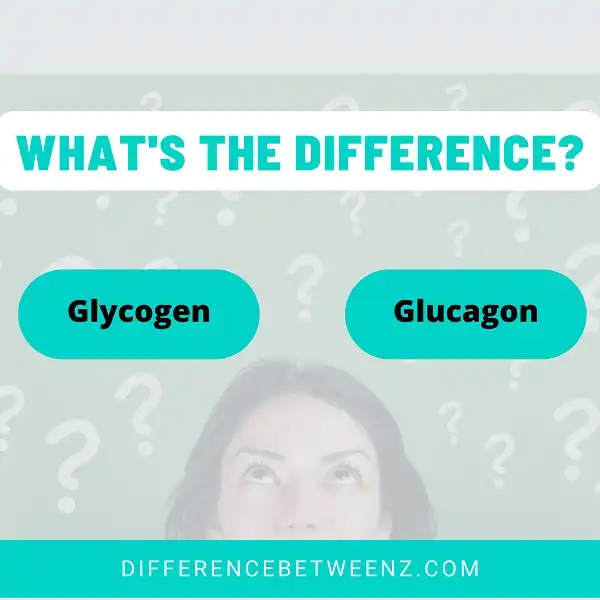Glycogen and glucagon are two of the most important hormones in the body. They play a crucial role in regulating blood sugar levels. However, they do this in very different ways. Understanding the difference between glycogen and glucagon is important for managing diabetes and other blood sugar disorders.
What is Glycogen?
Glycogen is a polysaccharide molecule that is the storage form of glucose in animals and humans. Glycogen is found in the liver and muscles, where it is stored for future use. When blood sugar levels fall, glycogen is broken down into glucose and released into the bloodstream. Glycogen is also an important fuel source during exercise. When glycogen stores are depleted, fatigue sets in and exercise performance declines. Glycogen can be replenished by eating carbohydrates such as bread, rice, pasta, and potatoes. For athletes, it is important to eat carbohydrate-rich foods both before and after exercise to replenish glycogen stores.
What is Glucagon?
Glucagon is a hormone that is produced by the pancreas. It plays an important role in regulating blood sugar levels. Glucagon works by stimulating the liver to release glucose into the bloodstream. This increase in blood sugar levels helps to maintain energy levels and prevent hypoglycemia (low blood sugar). Glucagon is also involved in fat metabolism. When glucagon levels are high, lipolysis (fat breakdown) is stimulated and triglyceride levels are reduced. Glucagon is secreted in response to low blood sugar levels or during periods of fasting. It is also released in times of stress, such as during exercise.
Difference between Glycogen and Glucagons
Glycogen and Glucagons are two important compounds in the body that have different functions. Glycogen is a sugar that is stored in the liver and muscles, and it is broken down to provide energy when needed. Glucagon is a hormone that helps to raise blood sugar levels when they are low. Glycogen is made up of chains of glucose molecules, while glucagon is a protein. Glycogen is used by the body for energy, while glucagon is used to regulate blood sugar levels.
Conclusion
n conclusion, glycogen and glucagon are both essential to the body in different ways. Glucagon is responsible for breaking down glycogen stores to release glucose into the bloodstream, while glycogen helps keep blood sugar levels stable by being converted into glucose as needed. Understanding these differences is important for anyone with diabetes or prediabetes, who need to be aware of how their body handles carbohydrates and maintain healthy blood sugar levels.


